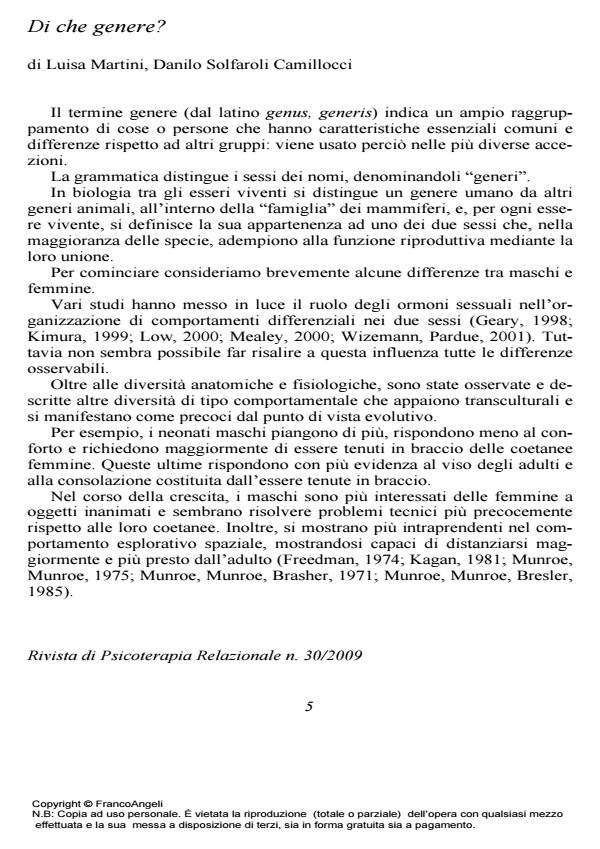Di che genere?
Titolo Rivista RIVISTA DI PSICOTERAPIA RELAZIONALE
Autori/Curatori Luisa Martini, Danilo Solfaroli Camillocci
Anno di pubblicazione 2010 Fascicolo 2009/30
Lingua Italiano Numero pagine 12 P. 5-16 Dimensione file 653 KB
DOI 10.3280/PR2009-030001
Il DOI è il codice a barre della proprietà intellettuale: per saperne di più
clicca qui
Qui sotto puoi vedere in anteprima la prima pagina di questo articolo.
Se questo articolo ti interessa, lo puoi acquistare (e scaricare in formato pdf) seguendo le facili indicazioni per acquistare il download credit. Acquista Download Credits per scaricare questo Articolo in formato PDF

FrancoAngeli è membro della Publishers International Linking Association, Inc (PILA), associazione indipendente e non profit per facilitare (attraverso i servizi tecnologici implementati da CrossRef.org) l’accesso degli studiosi ai contenuti digitali nelle pubblicazioni professionali e scientifiche.
Il termine "gener"’ indica una vasta gamma di cose o persone con caratteristiche comuni, ma differenziali rispetto ad altri gruppi. Per quanto riguarda il genere maschile e quello femminile, la letteratura mette in luce varie differenze oltre a quelle anatomiche e fisiologiche: nella percezione, nelle abilità spaziali, nelle capacità verbali, nell’aggressività e nel ciclo vitale. In parte, gli ormoni sono responsabili di queste differenze, ma la loro azione non è sufficiente a spiegarne la vastità e la variabilità. Le varie forme di gioco sociale negli animali (play fighting, chase play, play mothering) ci aiutano a renderci conto della complessa interazione di fattori ormonali e sociali nello sviluppo e nel consolidamento di queste differenze. Si rende così necessario pensare alle differenze di genere in termini di un sistema concettuale sesso-genere-sessualità che ci consenta di sfuggire alle rigide dicotomie maschile/femminile e omosessuale (proibito)/eterosessuale (permesso) per focalizzarci invece sull’interazione tra biologia e cultura, e non sul primato dell’una sull’altra. È possibile così riflettere e ridimensionare la forza degli stereotipi di genere, che tendono a mortificare l’individualità.
Parole chiave:Differenze, genere, gioco sociale, sesso, sessualità, stereotipi.
Luisa Martini, Danilo Solfaroli Camillocci, Di che genere? in "RIVISTA DI PSICOTERAPIA RELAZIONALE " 30/2009, pp 5-16, DOI: 10.3280/PR2009-030001